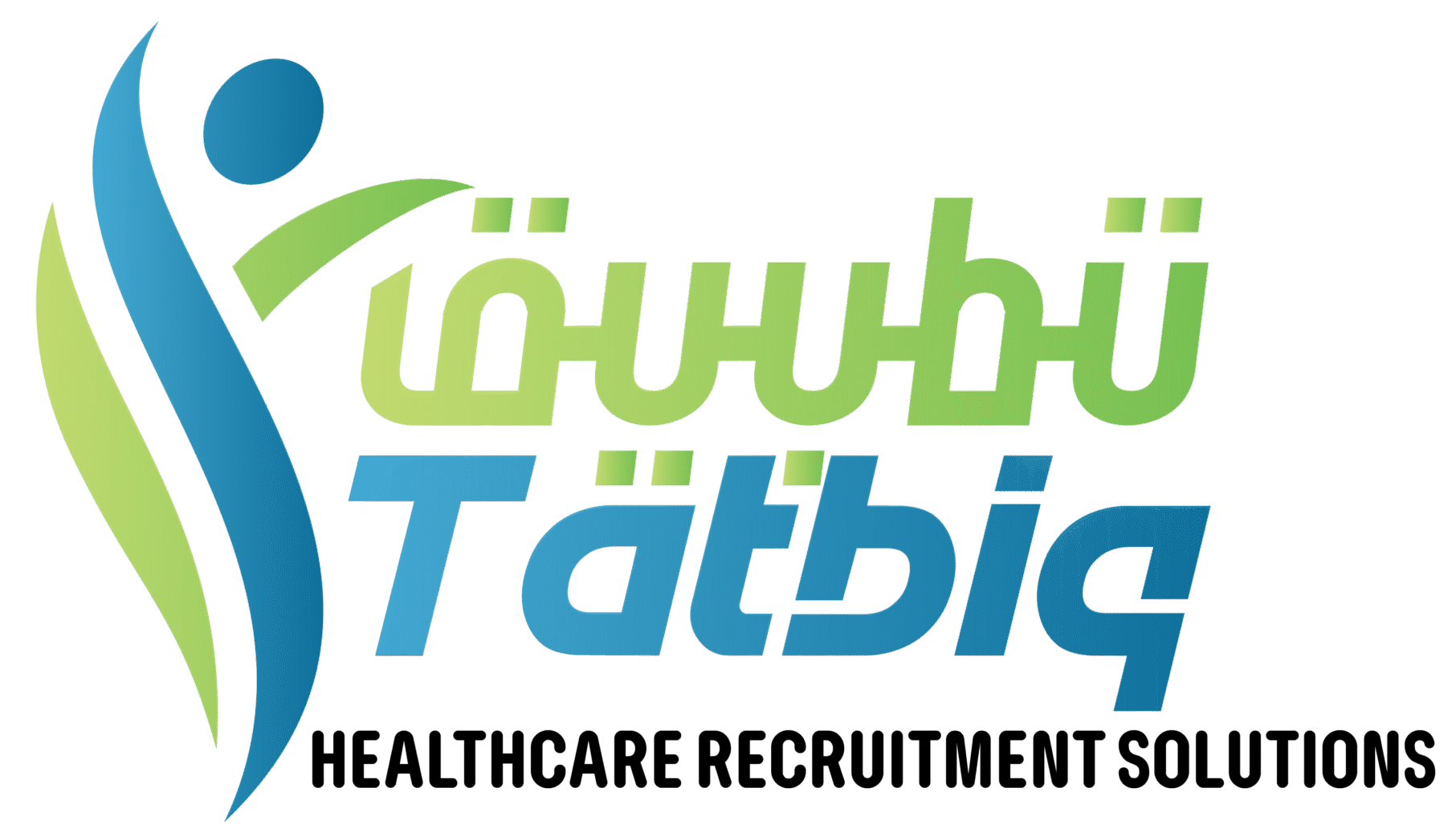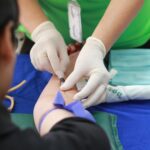
The Gulf healthcare sector is witnessing a remarkable transformation. With the development of advanced hospitals, specialized clinics, and large-scale healthcare infrastructure projects, the demand for skilled doctors has reached an all-time high. Urgent doctor vacancies Gulf are now a reality across multiple specialties, and medical institutions are actively searching for professionals ready to relocate immediately.
Tatbiq Health Care has become a trusted partner for doctors who want to secure rewarding careers and for hospitals that need skilled professionals quickly. We connect qualified doctors to Gulf healthcare job openings, ensuring both career growth and patient care excellence.
Whether you are looking for doctor jobs in Gulf countries as a general practitioner, a consultant, or a specialist, Tatbiq Health Care provides guidance and support throughout the recruitment process.
Why the Gulf is a Prime Destination for Doctors
Doctors from across the globe are increasingly considering relocation to the Gulf. The region offers unique benefits that make it one of the most attractive career destinations for healthcare professionals.
Key Advantages of Working in the Gulf
Tax-Free Salaries: Doctors earn higher take-home pay compared to many other parts of the world.
World-Class Infrastructure: Hospitals in the Gulf are equipped with cutting-edge medical technology.
Multicultural Workplace: Medical teams often include professionals from dozens of countries.
Research and Development: Doctors gain exposure to international medical standards and innovation.
High Quality of Life: Safe environments, modern housing, and family-friendly communities.
For doctors seeking hospital jobs for doctors Gulf, these benefits are a major motivation to apply for immediate vacancies.
Rising Demand for Doctors
The Gulf is investing heavily in healthcare expansion. This surge has led to an increase in medical job vacancies Gulf across almost every field of medicine.
In-Demand Specialties
General Practitioners
Pediatricians
Orthopedic Surgeons
Cardiologists
Neurologists
Radiologists
Gynecologists & Obstetricians
Emergency Medicine Specialists
Psychiatrists
Anesthesiologists
Hospitals and clinics are launching immediate hiring doctors Gulf drives to fill critical gaps and ensure uninterrupted patient care.
Role of Tatbiq Health Care
Tatbiq Health Care specializes in bridging the gap between doctors and hospitals. Unlike generic job portals, we focus exclusively on healthcare recruitment, making us experts in this field.
Our Services Include:
Verified listings for urgent doctor vacancies Gulf
Personalized career guidance
Licensing and documentation support
Direct access to hospital jobs for doctors Gulf
Relocation and family settlement assistance
By choosing Tatbiq Health Care, doctors gain a reliable recruitment partner committed to their long-term success.
Recruitment Process
We simplify the process for doctors looking for doctor jobs in Gulf countries.
Profile Creation: Doctors submit their professional details.
Job Matching: We match profiles with suitable Gulf healthcare job openings.
Applications: Doctors apply directly with our guidance.
Interviews: We coordinate interviews with top hospitals.
Placement: Candidates secure positions in leading Gulf institutions.
Relocation Support: Full visa, licensing, and settlement assistance.
This streamlined process ensures faster placement in immediate hiring doctors Gulf positions.
Future of Healthcare Employment in the Gulf
Healthcare growth in the Gulf is part of larger national strategies such as Saudi Vision 2030 and UAE’s National Health Strategy. These projects guarantee long-term demand for medical professionals.
Saudi Arabia: Healthcare cities and specialized centers being built.
UAE: Becoming a hub for medical tourism, raising demand for specialists.
Qatar: Expanding hospitals as part of post-World Cup investments.
Oman & Bahrain: Strengthening primary healthcare networks.
These initiatives ensure thousands of medical job vacancies Gulf will remain open in the coming years.
Licensing Requirements for Doctors
To practice medicine in the Gulf, doctors must meet licensing requirements:
UAE: DHA, MOH, and HAAD licenses.
Saudi Arabia: Saudi Commission for Health Specialties (SCFHS).
Qatar: QCHP License.
Kuwait: Ministry of Health License.
Oman: Oman Medical Specialty Board License.
Tatbiq Health Care assists candidates with every step of licensing, making it easier to secure urgent doctor vacancies Gulf.
Types of Doctor Employment Opportunities
Doctors applying for hospital jobs for doctors Gulf have multiple options:
Full-Time Contracts: Stable long-term positions.
Locum Positions: Short-term, flexible roles.
Part-Time Opportunities: Ideal for specialists seeking balance.
Consultant Positions: High-level roles for senior professionals.
This flexibility ensures doctors can pursue roles that match their expertise and lifestyle preferences.
Relocation and Family Benefits
One of the major advantages of doctor jobs in Gulf countries is the relocation support offered.
Benefits Include:
Visa sponsorship for dependents
Quality education systems for children
Safe communities and modern housing
Comprehensive healthcare for families
Relocation is made smooth, ensuring professionals focus entirely on their new medical roles.
Salary Packages for Doctors
Doctors in the Gulf earn competitive, tax-free salaries. Packages for medical job vacancies Gulf often include:
Housing allowances
Transportation support
Annual flight tickets
Comprehensive health insurance
CME allowances
Senior specialists and consultants enjoy even higher packages, making the Gulf one of the most lucrative regions for medical professionals.
Training and Research Opportunities
Doctors placed through Tatbiq Health Care also benefit from professional development.
Participation in international medical conferences
Access to advanced research facilities
Continuous Medical Education (CME) programs
Collaborative projects with global experts
These opportunities ensure that professionals in urgent doctor vacancies Gulf continue to advance in their careers.
Testimonials
“Tatbiq Health Care helped me land a pediatrician position in Abu Dhabi. The process was quick and professional.”
“Through Tatbiq, I applied for urgent doctor vacancies Gulf and was placed in Saudi Arabia within weeks. Their support was exceptional.”
“Thanks to Tatbiq Health Care, I secured a consultant role with excellent benefits. Highly recommended for doctors seeking jobs in Gulf countries.”
Countries Covered by Tatbiq Health Care
Tatbiq offers recruitment across the Gulf region:
United Arab Emirates (UAE)
Saudi Arabia (KSA)
Qatar
Oman
Kuwait
Bahrain
This wide network ensures maximum access to Gulf healthcare job openings.
Why Choose Tatbiq Health Care
Exclusive healthcare recruitment expertise
Verified urgent doctor vacancies Gulf
Trusted partnerships with hospitals
Transparent contracts and ethical hiring
Long-term career support
Our recruitment solutions ensure that doctors secure both immediate and sustainable employment.
. The demand for medical professionals is rapidly growing, creating numerous urgent doctor vacancies Gulf across hospitals, clinics, and healthcare institutions. Many healthcare providers are actively advertising doctor jobs in Gulf countries, offering attractive benefits and career growth opportunities for qualified candidates. A variety of Gulf healthcare job openings are available for specialists, general practitioners, and consultants, making it easier for doctors to find positions that match their expertise. With the increasing need for medical services, several institutions are focusing on immediate hiring doctors Gulf to ensure uninterrupted patient care. These medical job vacancies Gulf provide doctors with opportunities to work in dynamic clinical settings, gain international experience, and advance their careers in the thriving Gulf healthcare sector. The healthcare sector in the Gulf region is experiencing a remarkable expansion, creating a growing demand for medical professionals across all specialties. Hospitals, clinics, and specialty centers are actively looking to fill urgent doctor vacancies Gulf, making it an ideal time for qualified professionals to explore career opportunities in the region. Doctors seeking challenging yet rewarding positions will find that doctor jobs in Gulf countries provide competitive salaries, professional development, and exposure to state-of-the-art medical facilities. With an increasing number of patients and the need for advanced healthcare services, Gulf healthcare job openings have become critical for ensuring the delivery of high-quality care across the region. Whether a doctor is an experienced specialist or a fresh graduate, opportunities in the Gulf allow them to join top medical institutions that value expertise, professionalism, and patient-centric care. The concept of immediate hiring doctors Gulf has become essential for hospitals aiming to maintain seamless medical services, especially in emergency care, specialized treatments, and high-demand departments. Medical professionals who respond to these opportunities can secure positions that offer excellent compensation, housing, and additional benefits tailored to expatriate doctors. Furthermore, the number of medical job vacancies Gulf has steadily increased in recent years, reflecting the strategic investments made by governments and private institutions to upgrade healthcare infrastructure. These investments translate into modern hospitals, advanced diagnostic centers, and specialized treatment facilities, which in turn create an array of hospital jobs for doctors Gulf that appeal to diverse medical professionals worldwide. The quality of medical facilities in the Gulf is a major attraction for professionals seeking long-term career growth. Hospitals offering hospital jobs for doctors Gulf are equipped with modern operating theaters, advanced diagnostic equipment, electronic health record systems, and access to the latest treatment protocols. These advanced facilities allow doctors to enhance their skills, participate in cutting-edge procedures, and contribute to research initiatives. Moreover, the presence of international medical teams fosters a collaborative environment, making urgent doctor vacancies Gulf especially appealing for those who value teamwork and professional networking. Doctors applying for doctor jobs in Gulf countries also benefit from structured training programs, workshops, and continuous medical education, which ensures that they remain up-to-date with global healthcare standards. Access to such resources not only enhances clinical expertise but also boosts the overall quality of patient care delivered in Gulf healthcare job openings. Hospitals actively seeking immediate hiring doctors Gulf often prioritize candidates with strong academic backgrounds, clinical experience, and excellent communication skills, ensuring that patients receive care from highly competent professionals. In addition to competitive compensation, many medical job vacancies Gulf provide opportunities for doctors to enjoy a balanced lifestyle. Expatriate doctors taking up hospital jobs for doctors Gulf often receive family sponsorship, safe housing, and access to quality educational institutions for their children. Living in cosmopolitan cities with modern infrastructure, recreational facilities, and cultural diversity adds to the overall appeal of pursuing urgent doctor vacancies Gulf in the region. Doctors who secure positions through professional recruitment services gain access to verified doctor jobs in Gulf countries, avoiding unverified or fraudulent listings and ensuring a trustworthy application process. The role of professional agencies is especially critical in Gulf healthcare job openings, where they provide guidance on licensing procedures, document verification, and contract negotiations, making the transition to a new country seamless for immediate hiring doctors Gulf. By applying to such opportunities, medical professionals can secure positions in reputable hospitals and clinics that value expertise, commitment, and high-quality patient care, contributing to the growing pool of medical job vacancies Gulf. The diverse range of hospital jobs for doctors Gulf covers specialties including internal medicine, surgery, pediatrics, cardiology, orthopedics, anesthesiology, radiology, gynecology, dermatology, neurology, psychiatry, and emergency medicine. Hospitals are expanding their staff not only to meet patient demand but also to support initiatives in medical research, preventive care, and innovative treatment methods. Urgent doctor vacancies Gulf frequently arise in response to sudden staffing needs, retirements, or seasonal patient surges, providing opportunities for professionals seeking prompt placement. For candidates looking for doctor jobs in Gulf countries, these positions offer exposure to large-scale healthcare operations, advanced technology, and high patient volumes, enabling them to build comprehensive experience across multiple medical domains. Gulf healthcare job openings also offer benefits like professional mentoring, collaborative clinical practice, and access to international medical conferences, which enrich the careers of doctors pursuing immediate hiring doctors Gulf roles. Furthermore, the rising medical tourism industry in the Gulf has contributed to the surge in medical job vacancies Gulf, with specialized hospitals requiring doctors for oncology, cardiology, orthopedic surgery, and cosmetic procedures. Hospital jobs for doctors Gulf often include contracts that provide additional incentives for performance, research contributions, and patient care excellence. Candidates applying for urgent doctor vacancies Gulf benefit from structured recruitment processes, transparent hiring practices, and full support from recruitment agencies, ensuring a smooth onboarding experience. By targeting doctor jobs in Gulf countries, professionals can take advantage of international experience, professional development opportunities, and exposure to cutting-edge medical practices. Access to verified Gulf healthcare job openings allows candidates to identify the best roles that match their qualifications, enabling them to join hospitals with robust training, mentorship, and career progression opportunities. Doctors seeking immediate hiring doctors Gulf roles often enjoy faster placement timelines, competitive compensation packages, and full support for relocation, licensing, and family settlement. The Gulf region continues to attract medical talent from around the world due to the combination of professional growth, advanced facilities, competitive salaries, and high quality of life. Medical job vacancies Gulf are not only abundant but also diverse, spanning multiple specialties, employment types, and experience levels. Hospital jobs for doctors Gulf provide an opportunity to work in modern facilities alongside international teams, improving patient care and contributing to healthcare excellence. Urgent doctor vacancies Gulf are frequently updated, giving candidates the chance to secure their desired roles quickly. Recruitment agencies and hospitals collaborate to ensure that doctor jobs in Gulf countries are transparent, legitimate, and aligned with the candidate's expertise. By leveraging professional networks and verified Gulf healthcare job openings, medical professionals can confidently apply to positions that offer both career growth and personal development. Overall, pursuing immediate hiring doctors Gulf roles offers numerous advantages including high-quality infrastructure, tax-free salaries, family support, professional development, and exposure to international healthcare standards. The growing number of medical job vacancies Gulf reflects the ongoing investment in healthcare by Gulf governments and private institutions. Hospital jobs for doctors Gulf are ideal for professionals seeking challenging, rewarding, and high-impact roles. By applying for urgent doctor vacancies Gulf and exploring verified doctor jobs in Gulf countries, candidates can secure positions that match their expertise, aspirations, and lifestyle preferences. Access to trusted Gulf healthcare job openings ensures a smooth recruitment process, while immediate hiring doctors Gulf opportunities provide a fast-track to meaningful and fulfilling careers.Healthcare is one of the most dynamic and rapidly evolving sectors globally. The demand for skilled medical professionals continues to grow as populations expand, life expectancy increases, and healthcare technology advances. Modern hospitals and clinics provide comprehensive services, ranging from preventive care to highly specialized surgical procedures, creating a variety of roles for medical practitioners. Professionals working in these environments have the opportunity to engage in cutting-edge treatments, collaborate with multidisciplinary teams, and make a meaningful impact on patients’ lives. The work of medical professionals extends beyond treating illnesses. It encompasses preventive care, patient education, and community health initiatives. Hospitals are increasingly focusing on holistic approaches that integrate physical, mental, and emotional health. This trend emphasizes the importance of skilled practitioners who can manage complex cases, communicate effectively with patients, and provide compassionate care. Advanced healthcare systems also encourage innovation through research, clinical trials, and the development of new treatment protocols, offering professionals opportunities to contribute to scientific advancements. Medical professionals today are expected to balance clinical responsibilities with administrative and research duties. Leadership skills are essential, especially for those managing departments or supervising junior staff. Professionals who take on such roles often influence hospital policies, improve patient outcomes, and mentor emerging talent. Institutions increasingly value continuous education, with many offering workshops, conferences, and training programs to ensure that staff remain up-to-date with the latest medical advancements and best practices. Working in a well-equipped hospital provides exposure to state-of-the-art technology, including advanced imaging systems, electronic health records, minimally invasive surgical tools, and robotic-assisted procedures. Professionals trained in these technologies can improve efficiency, reduce errors, and enhance patient care. Collaboration with specialists from various fields allows for integrated treatment plans and comprehensive care, benefiting both patients and practitioners. Hospitals also invest heavily in quality assurance, patient safety programs, and accreditation processes, reinforcing the importance of professional competence and adherence to international standards. Career progression in modern healthcare is supported by structured mentorship and professional development programs. Experienced practitioners have the opportunity to guide younger colleagues, lead research initiatives, and participate in policy development. This environment fosters growth, innovation, and excellence, motivating professionals to continually refine their skills and expand their knowledge base. Training programs often include simulated clinical scenarios, workshops on new technologies, and courses on patient communication, all of which contribute to holistic professional development. Healthcare professionals also play a crucial role in addressing public health challenges. Hospitals and clinics are increasingly engaged in community outreach programs, vaccination campaigns, and preventive health screenings. By participating in these initiatives, medical practitioners help reduce disease prevalence, educate the public about healthy lifestyles, and contribute to the overall well-being of communities. These activities provide opportunities for professionals to develop leadership skills, enhance public engagement abilities, and expand their clinical experience beyond hospital settings. In addition to clinical expertise, modern healthcare professionals must possess strong analytical and decision-making skills. They are often required to interpret complex diagnostic data, determine appropriate treatment plans, and respond swiftly to emergencies. Interdisciplinary teamwork is essential, with professionals collaborating with nurses, technicians, pharmacists, and administrative staff to ensure coordinated patient care. Effective communication, cultural sensitivity, and empathy are increasingly recognized as critical competencies, as healthcare systems serve diverse patient populations with varying needs and expectations. Medical research and innovation are integral to career development in healthcare. Professionals are encouraged to participate in clinical studies, contribute to publications, and collaborate with academic institutions. Research experience not only enhances professional credibility but also fosters critical thinking and problem-solving skills. Hospitals often provide dedicated resources for research activities, including access to laboratories, funding, and mentorship programs, enabling practitioners to explore new treatment methods and contribute to scientific advancement. Technology has transformed the healthcare landscape, providing tools for diagnostics, patient monitoring, and data management. Telemedicine, artificial intelligence, and wearable devices are increasingly integrated into clinical practice, allowing professionals to reach patients in remote locations, monitor chronic conditions, and personalize treatment plans. Familiarity with these innovations enhances professional competence and allows practitioners to deliver care that meets modern standards of efficiency and quality. Healthcare institutions also emphasize ethical practice and patient-centered care. Professionals are trained to adhere to ethical guidelines, maintain patient confidentiality, and deliver care with compassion and respect. Ethical practice fosters trust between patients and providers, improves patient outcomes, and enhances professional reputation. Hospitals often have committees and review boards to ensure compliance with legal and ethical standards, supporting continuous improvement and accountability. Training in emergency medicine, critical care, and specialized surgical techniques is an integral part of professional development. Simulation-based learning, workshops, and supervised clinical experiences prepare professionals to handle high-pressure situations effectively. Continuous evaluation and feedback mechanisms allow practitioners to refine their skills, enhance decision-making capabilities, and deliver high-quality care in critical situations. This focus on preparedness and competence ensures that healthcare institutions can respond efficiently to emergencies while maintaining patient safety. Collaboration with multidisciplinary teams is central to modern medical practice. Doctors, nurses, therapists, pharmacists, and technicians work together to develop comprehensive care plans tailored to individual patients. Effective collaboration improves diagnostic accuracy, streamlines treatment, and enhances patient satisfaction. Professionals also participate in regular team meetings, case discussions, and professional development sessions to ensure that knowledge is shared and care standards are consistently upheld. Healthcare careers also offer opportunities in administration and policy-making. Experienced professionals may transition into roles that involve managing hospital operations, overseeing clinical departments, or developing healthcare policies. These positions allow practitioners to influence organizational strategy, optimize resource allocation, and implement initiatives that improve patient care and operational efficiency. Leadership roles require a combination of clinical expertise, management skills, and strategic thinking, providing a pathway for career diversification. Community engagement is a key component of healthcare practice. Hospitals and clinics often organize health awareness campaigns, preventive screenings, and educational workshops. Professionals involved in these initiatives contribute to public health, enhance their communication skills, and build trust within the communities they serve. Participation in such programs also provides insights into epidemiology, social determinants of health, and preventive medicine, enriching the overall professional experience. The integration of digital health technologies has revolutionized patient care. Electronic health records, telemedicine platforms, and mobile health applications allow professionals to monitor patient progress, coordinate care, and improve communication. Training in these technologies enhances efficiency, reduces errors, and supports data-driven clinical decision-making. Familiarity with digital tools is now considered a core competency for medical professionals working in modern healthcare settings. Healthcare professionals also have the opportunity to contribute to education and training. Teaching roles in medical schools, residency programs, and hospital training centers allow practitioners to mentor the next generation of doctors. This involvement in education reinforces clinical knowledge, enhances leadership skills, and promotes a culture of continuous learning. Academic engagement often leads to research collaborations, publications, and professional recognition, further advancing career prospects. Preventive medicine and population health are increasingly prioritized in modern healthcare systems. Professionals are involved in designing and implementing programs aimed at disease prevention, early detection, and health promotion. Participation in these initiatives allows practitioners to make a broader impact on community health, reduce hospital admissions, and promote healthier lifestyles. Understanding epidemiological trends and population health metrics enhances decision-making and strategic planning capabilities. Hospitals invest heavily in quality improvement and patient safety programs. Professionals are trained to identify risks, implement best practices, and monitor outcomes. Continuous quality improvement initiatives ensure that clinical standards are maintained, patient satisfaction is enhanced, and healthcare delivery remains efficient. Participation in these programs allows practitioners to develop analytical skills, leadership abilities, and expertise in process optimization. Research plays a vital role in modern healthcare. Professionals are encouraged to participate in clinical studies, contribute to publications, and collaborate on research projects. Research experience enhances problem-solving abilities, critical thinking, and knowledge of evidence-based practices. Hospitals and academic institutions provide resources, mentorship, and platforms for professionals to engage in meaningful research, ultimately improving patient care and advancing medical knowledge. International conferences and seminars offer opportunities for networking, learning, and professional recognition. Participation in these events allows healthcare professionals to stay updated on global trends, emerging technologies, and best practices. Engaging with peers from around the world fosters collaboration, knowledge exchange, and exposure to innovative approaches to healthcare delivery. Work-life balance is a key consideration for medical professionals. Institutions implement policies that promote flexible scheduling, wellness programs, and mental health support. Maintaining balance reduces burnout, increases job satisfaction, and enhances overall productivity. Professionals who can effectively manage their workload and personal life contribute more meaningfully to patient care and organizational success. Finally, the healthcare sector offers diverse career pathways. Beyond clinical practice, professionals can explore roles in administration, research, education, policy-making, and consultancy. These pathways allow practitioners to leverage their expertise in varied contexts, broaden their professional impact, and achieve long-term career satisfaction.
[rank_math_rich_snippet id="s-261dfd79-49e2-4a80-8b5e-8b8c87e6670a"]





